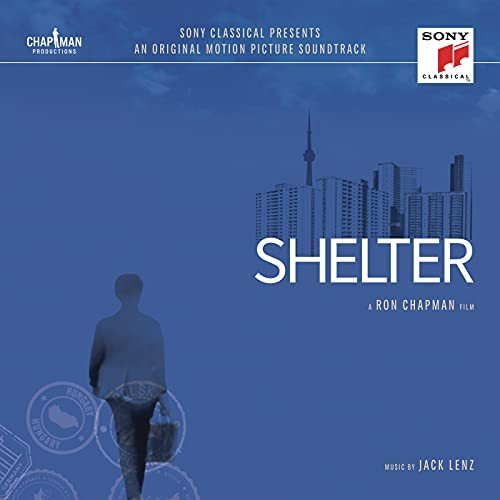From the early 1950s to the mid-‘70s, a group of Jewish immigrants, including several Holocaust survivors, built most of Toronto’s rental housing, apartment buildings that provided accommodation for successive waves of immigrants arriving in the city.
Shelter, a powerful documentary that tells their astonishing story, opens the 2021 spring online edition of the Toronto Jewish Film Festival, with the film’s world premiere on June 3. It can be viewed again on June 4.
The builders started out buying, flipping and building houses in the 1950s, and over the next two decades they began putting up apartment buildings. Between 1952 and 1975, they had created more than 500,000 rental units, 85 percent of the city’s rental housing stock. When rent controls were imposed by the provincial government in the mid-‘70s, construction of new rental housing in Toronto almost ceased.
The film features interviews with the builders and their families, including Sam Brown of The Brown Group; Al and Harold Green of the Greenwin group; Eph Diamond, the founding partner of the Cadillac Fairview Corp; Mendel Tenenbaum of The Tenen Group and others.
Directed by Ron Chapman, Shelter opens with archival footage and well-made historical re-enactments of pogroms and scenes of the Holocaust shot in Poland with a cast of some 55 extras. The documentary includes moving interviews with Holocaust survivors—Brown, Tenenbaum and Anne Weinbaum (the wife of Jack Weinbaum, the developer of Toronto’s Flemingdon Park) who speak about their horrific wartime experiences.
“I thought it was important to tell the entire immigration story, to tell why did they immigrate. In each case, whether it was pre-Holocaust immigration or post-Holocaust immigration, it was clear why these people immigrated,” Chapman said.
The film’s post-Holocaust re-enactments include a tense conversation young Tenenbaum had with an immigration official when he came to Canada. Tenenbaum arrived here with suitcases of antiques and the official wondered how he got them, since he’d come from a displaced persons camp. The official admitted Tenenbaum, who sold the antiques and made a profit, and the two men ended up becoming friends.
When the Holocaust survivors arrived in Toronto, they encountered anti-Semitism that barred them from entering many professions and they responded by coming entrepreneurs. “Back in the ‘50s, it was a very prejudiced city, against Jews. There were so many different fields that were closed to Jews,” Chapman said.
“It wasn’t necessarily that building was their passion, but building was the only thing they could figure out to do to support their families. And it required a lot of guts. They made deals and put money they didn’t have on them,” Chapman said.
With successive waves of immigration, Toronto grew from one million to two million people during the post-war period. Chapman said the builders had their “aha” moment when they decided to construct multi-unit buildings, recognizing the need for more housing in the city. Instead of selling single houses built on land they assembled, they decided to build up, low rises and high rises, and they also become landlords of their new buildings for a continuing source of income.
“That is what made it possible for all of these other immigrants to come in. It was immigrants building for immigrants,” Chapman said.
Becoming developers of apartment buildings was a huge business risk, but the survivors were fearless, Chapman said. “The fear of failure for them was not something which deterred them from going to make something happen. They had no fear of failure because they had seen the worst there was to see. And a deal not working out, losing money, bankruptcy, meant nothing.”
That risk-taking ended up providing housing for immigrants from around the world, who have made Toronto one of the most successful multicultural cities. In the documentary, Graeme Stewart, the director of the Centre for Urban Growth and Renewal, says it wouldn’t have happened without the housing.
TJFF2021 Online is presenting more than 60 films from June 3 to 13. Following are some of the programmers’ picks.
Lune, June 4 & 5
Co-writer and co-director Aviva Armour-Ostroff, who’s well-known in Toronto’s theatre community, delivers a mesmerizing lead performance in this film about politics, religion, the mental health care system and parenting. In Toronto in 1994, Miriam, a South African-born Jew, navigates a manic episode triggered by her determination to vote for the recently freed Nelson Mandela. Having spent years fighting apartheid, Miriam is eager to return to South Africa to vote in the historic election. But her mania escalates when she meets her teenage daughter’s African-Canadian boyfriend. Aviva Armour-Ostroff was recently interviewed on The CJN podcast Bonjour Chai.
The Adventures of Saul Bellow, June 9 & 10
Director Asaf Galay delivers the first documentary about author Saul Bellow, one of the most acclaimed chroniclers of post-war American Jewish life. Galay intelligently weaves a chronological study of Bellow’s oeuvre with an intimate portrait of the writer’s inner life and relationships. According to Philip Roth, one of the many people interviewed, what was liberating about Bellow’s fiction compared to other Jewish writers was that he just presented Jews as they were rather than trying to honour or defend them. Similar insights by writers such as Salman Rushdie and Martin Amis make this compulsory viewing for Bellow fans.
Raymonde El Bidaouia, June 10 & 11
Actress Yaël Abecassis goes behind the camera to follow her mother, one of the most recognized voices of Morocco, Raymonde El Bidaouia. A Jewish-Moroccan icon, El Bidaouia has dedicated the last 50 years of her life to performing and promoting Judeo-Arabic music on both sides of the Mediterranean. Travelling between Israel and Morocco, mother and daughter share their passion for music as well their personal struggles. The result is both a vivid portrait of a diva and an intimate exploration of a mother-daughter relationship.
Leonard Cohen, Portrait of the Artist, June 13 & 14
In this newly restored documentary by French artist Armelle Brusq, we are offered a rare view into Leonard Cohen during the five years that he lived at Mount Baldy Zen Center. As the camera follows him through his daily routine as a Buddhist and disciple of the Zen teacher, Kyozan Joshu Sasaki Roshi, Cohen reminisces about his life and discusses his decision to live at the Zen Center. Cohen also allows us a glimpse of his archives and waxes eloquent over a meal at Canter’s deli in Los Angeles. A glimpse of the artist as you’ve never seen him before, this documentary is a must for Cohen fans and features a soundtrack of some of his best songs.
The Specials (Hors Normes), closing film
Vincent Cassel plays Bruno, a Jewish man who runs a shelter for autistic teens turned away from other institutions. His friend Malik (Reda Kateb, A Prophet) is a Muslim who runs a non-profit that trains disadvantaged teenagers to be caregivers. Frustrated by lack of funding, the two men join forces to confront systemic neglect and fight for those marginalized by society. Directed by Olivier Nakache and Éric Toledano, the duo behind the French smash hit, The Intouchables.
For more information about TJFF2021 Online, June 3 to June 13, visit tjff.com.







